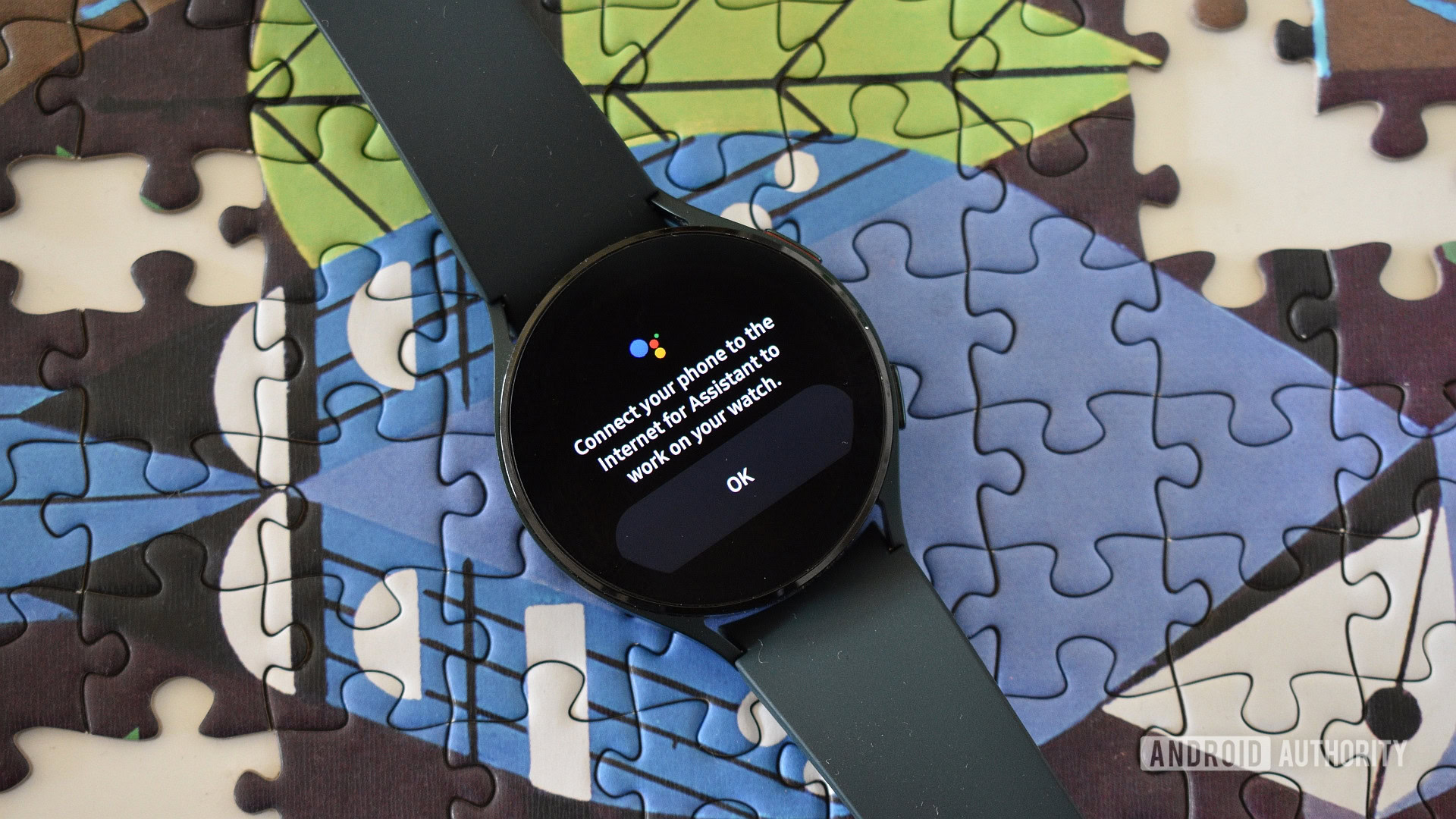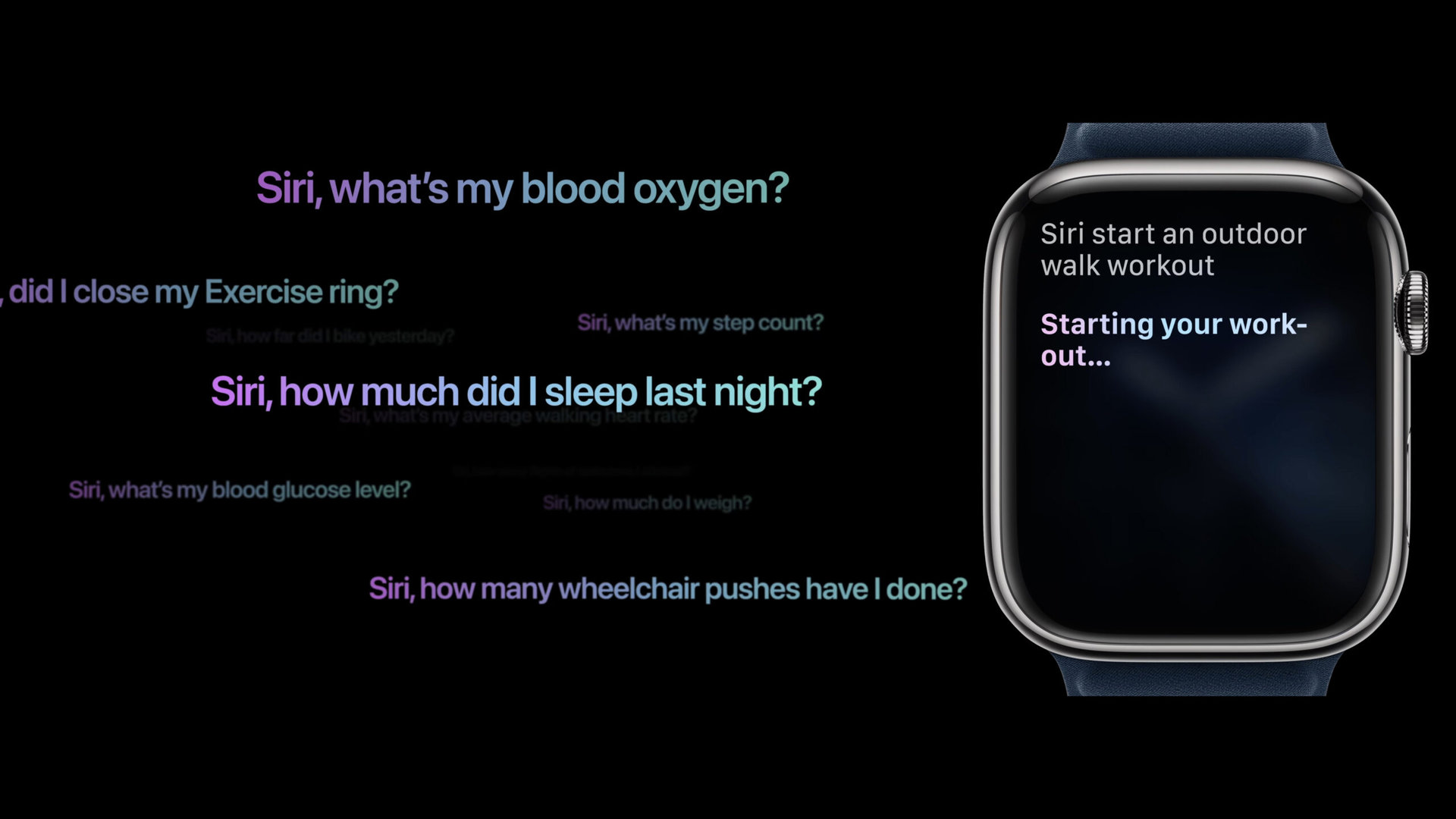Rita El Khoury / Android Authority
For years now, Google has touted its on-device processing for all kinds of Assistant-capable devices: smart speakers, Pixel phones, Android Auto, and yes, Wear OS watches too. All of these claims make very little difference from a user perspective, though, because Google Assistant just zones out whenever it has no internet access.
When you’re offline, Assistant grinds to a halt on any phone, speaker, or smartwatch.
If your Nest Audio is offline, it can’t answer a simple question like “What time is it?”. If your Google Pixel is offline, Assistant can’t turn on the flashlight. If your Pixel Watch is not connected, Assistant can’t set a 10-minute timer. Even if Google can process your voice locally and understand what you’re saying, it needs to send that request to a server — either directly via Wi-Fi or indirectly through Bluetooth to an online phone — to fetch the appropriate answer or action. So when you’re offline, everything grinds to a halt. Summoning Google’s voice assistant results in an error and you can’t even begin to say your request.

Andy Walker / Android Authority
And that makes you wonder: What good is any on-device processing if it doesn’t work when you absolutely need it, i.e. when your internet connection is patchy or down? And how can I trust that some of my data is staying local when every little thing requires an internet connection?
This is why I think it’s essential for Google to bring offline and local features to Assistant on the Pixel Watch 2 — and the Pixel 8 lineup too, while we’re at it. For those devices to be truly helpful and fast at that, they have to be able to not only process my voice locally but also reply to basic commands, with no need to ping a server and wait for a response. Setting a timer, opening an app, starting a stopwatch, toggling some settings, turning on the flashlight, and various other basic actions should be achievable offline. They should also execute faster; otherwise, I’m better off manually tapping and scrolling until I perform the action on my own.
Setting a timer or opening an app should happen locally and quickly. The Pixel Watch 2 has to offer these.
All of our connected devices have more computing power now than the entirety of NASA in 1969, so you can’t convince me they can’t set a timer with a voice command when we sent people to the moon with much less.

Rita El Khoury / Android Authority
The need to run things locally and quickly is also more crucial now that Apple has skipped over Google’s years of “on-device” claims and announced local, on-device Siri actions on the Watch Series 9, two years after introducing it to the iPhone. The new Apple Watch should be able to set timers and start workouts without the need to ping any server. It all happens locally. We don’t have the full list of offline actions yet, so it’s quite likely that it’s capable of more, just like offline Siri on the iPhone.
The Pixel Watch 2 shouldn’t launch without yet another feature that the Apple Watch offers.
Like it did with Siri on iPhone, Apple is spearheading local voice commands on the Watch Series 9 and leaving Assistant in the dust.
Apple is also pushing this further by letting users ask Siri about their health data and log new data points, with no privacy risk, because the request is processed locally. If I ask my Pixel Watch now how I slept, how many steps I’ve taken, or what my current heart rate is, it just tells me it can’t do that yet. I have to find the Fitbit app and launch it or I have to place that info on my Pixel watch face to have it easily accessible at all times. Forget about logging anything like water or weight — these require the Fitbit app on my phone and can’t be done on the watch in any way.
It’s a bit disheartening to see Google Assistant lag behind Siri with such obvious features. For several years, Assistant had a leg up on every competitor, mainly because it had a better understanding of natural language commands and it could answer any question thanks to the power of Google Search. But things have stalled so badly for so long now that it’s falling behind Siri’s slow and steady improvement. Apple didn’t have to do much; just persevere and keep up with the incremental additions, then watch while Google dispersed itself in a million directions, moved the goalpost many times, and eventually lost sight of the goal.
Do you remember when was the last time that anything new or interesting happened with Assistant? Neither do I. But I suppose that’s a discussion for another day.


